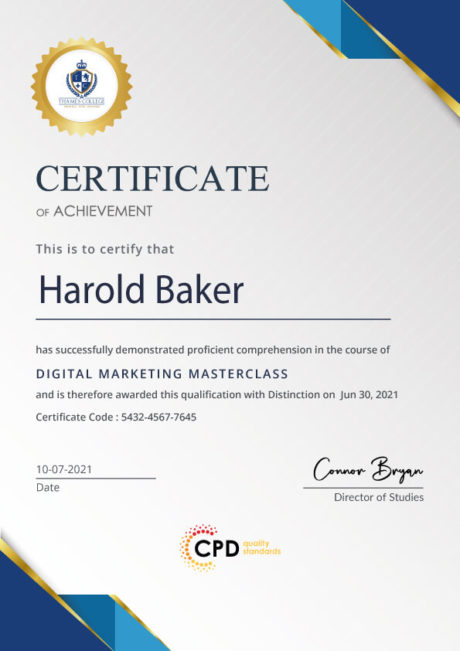| Induction Form |
|
Induction Form |
|
00:00:00 |
| Registration Entry Form |
|
Registration Entry Form |
|
00:00:00 |
| Guidance for Achieving the Units |
|
Unit 1 Understanding The Principles And Practices Of Assessment Guidance For Achieving The Unit |
|
00:00:00 |
|
Unit 2 Assess Occupational Competence In The Work Environment Guidance For Achieving The Unit |
|
00:00:00 |
|
Unit 3 Assess Vocational Skills, Knowledge And Understanding Guidance For Achieving The Unit |
|
00:00:00 |
|
Assessment Guidelines |
|
00:00:00 |
| Support Materials |
| Unit 01 : Understanding the Principles and Practices of Assessment |
| LO1: Understand the Principles and Requirements of Assessment |
|
1. Functions of Assessment in Learning and Development |
|
01:00:00 |
|
2. Key Concepts and Principles of Assessment |
|
01:00:00 |
|
3. Responsibilities of an Assessor |
|
01:00:00 |
|
4. Regulations and Requirements Relevant to the Assessment |
|
01:00:00 |
| LO2: Understand Different Types of Assessment Method |
|
1. Strengths and Limitations of Various Assessment Methods |
|
01:00:00 |
| LO3: Understand How to Plan Assessment |
|
1. Key Factors to Consider When Planning Assessment |
|
01:00:00 |
|
2. Benefits of Using A Holistic Approach to Assessment |
|
01:00:00 |
|
3. How to Plan A Holistic Approach to Assessment |
|
01:00:00 |
|
4. Types of Risks Involved in Assessment |
|
01:00:00 |
|
5. How to Minimise Risks Through the Planning Process |
|
01:00:00 |
| LO4: Understand How to Involve Learners and Others in Assessment |
|
1. Importance of Involving Learner and Others in The Assessment Process |
|
01:00:00 |
|
2. Information That Should Be Made Available to Learners and Others |
|
01:00:00 |
|
3. How to Use Peer and Self-Assessment Effectively |
|
01:00:00 |
|
4. Assessment Arrangements to Meet the Needs of Individual Learners |
|
01:00:00 |
| LO5: Understand How to Make Assessment Decisions |
|
1. Assessment Decisions and Judging Evidence |
|
01:00:00 |
| LO6: Understand Quality Assurance of the Assessment Process |
|
1. Importance of Quality Assurance in The Assessment Process |
|
01:00:00 |
|
2. Quality Assurance and Standardisation Procedures |
|
01:00:00 |
|
3. Appeals, Complaints & Disputes Procedures Concerning Assessment in Own Area of Practice |
|
01:00:00 |
| LO7: Understand How to Manage Information Relating to Assessment |
|
1. Importance of Following Procedures for The Management of Information Relating to Assessment |
|
01:00:00 |
|
2. How Feedback and Questioning Contribute to the Assessment Process |
|
01:00:00 |
| LO8: Understand the Legal and Good Practice Requirements in Relation to Assessment |
|
1. Legal Issues, Policies and Procedures Relevant to Assessment |
|
01:00:00 |
|
2. Contribution of Technology in the Assessment Process |
|
01:00:00 |
|
3. Evaluation of Requirements for Equality, Diversity |
|
01:00:00 |
|
4. Reflective Practice and Continual Professional Development |
|
01:00:00 |
| Unit 02 : Assess Occupational Competence in the Work Environment |
| LO1: Be Able to Plan the Assessment of Occupational Competence |
|
1. Assessment Planning of Occupational Competence |
|
02:00:00 |
|
2. Communicating the Process of Assessing Occupational Competence to The Learner |
|
02:00:00 |
|
3. Planning the Assessment of Occupational Competence to Address Learner Needs and Current Achievements |
|
02:00:00 |
|
4. Opportunities for Holistic Assessment |
|
02:00:00 |
| LO2: Be Able to Make Assessment Decisions About Occupational Competence |
|
1. Valid, Fair and Reliable Assessment Method |
|
02:00:00 |
|
2. Making Assessment Decisions of Occupational Competence |
|
02:00:00 |
|
3. Following Standardisation Procedures |
|
02:00:00 |
|
4. Providing Feedback to Learners |
|
02:00:00 |
| LO3: Be Able to Provide Required Information Following the Assessment of Occupational Competence |
|
1. Maintaining Records of the Related Information of the Assessment of Occupational Competence |
|
02:00:00 |
|
2. Sharing Assessment Information with Authorised Colleagues and Procedures to Maintain the Confidentiality |
|
02:00:00 |
| LO4: Be Able to Maintain Legal and Good Practice Requirements When Assessing Occupational Competence |
|
1. Relevant Policies, Procedures and Legislation Relating to The Assessment of Vocational Skills, Knowledge and Understanding |
|
01:00:00 |
|
2. Applying Requirements for Equality and Diversity and Bilingualism |
|
01:00:00 |
|
3. Evaluation and CPD |
|
01:00:00 |
|
4. Maintaining the Currency of Own Expertise and Competence |
|
02:30:00 |
| Unit 03 : Assess Vocational Skills, Knowledge and Understanding |
| LO1: Be Able to Prepare Assessments of Vocational Skills, Knowledge and Understanding |
|
1. Methods of Assessing Vocational Skills, Knowledge and Understanding to Meet Requirements and Needs |
|
01:00:00 |
|
2. Preparing Resources and Conditions for The Assessment |
|
01:00:00 |
|
3. Communicating the Purpose, Requirements and Processes of Assessment to Learners |
|
01:01:00 |
| LO2: Be Able to Carry Out Assessments of Vocational Skills, Knowledge and Understanding |
|
1. Assessment Management to Meet Assessment Requirements |
|
01:00:00 |
|
2. Providing Support to Learners Within Agreed Limitations |
|
01:00:00 |
|
3. Analysing Evidence of Learner Achievement |
|
01:00:00 |
|
4. Making Assessment Decisions Related to Vocational Skills, Knowledge and Understanding |
|
01:00:00 |
|
5. Standardisation Procedures |
|
01:00:00 |
|
6. Feedback on Learners’ Achievement |
|
01:00:00 |
| LO3: Be Able to Provide Required Information Following the Assessment of Vocational Skills, Knowledge and Understanding |
|
1. Maintaining Records of Assessment, Its Outcome and Learners Progress |
|
01:00:00 |
|
2. Making Assessment Information Available to Authorised Colleagues as Required and Maintaining Confidentiality |
|
01:00:00 |
| LO4: Be Able to Maintain Legal and Good Practice Requirements When Assessing Vocational Skills, Knowledge and Understanding |
|
1. Relevant Policies, Procedures and Legislation Relating to The Assessment of Vocational Skills, Knowledge and Understanding |
|
00:59:00 |
|
2. Applying Requirements for Equality and Diversity and Bilingualism |
|
01:01:00 |
|
3. Evaluation and CPD |
|
01:00:00 |
| Handouts |
|
Equality and Diversity – Glossary of Terms |
|
01:00:00 |
|
Equality and Diversity, and The Equality Act 2010 |
|
01:00:00 |
|
Key Feedback Words for Use During Feedback |
|
01:00:00 |
|
Table of Assessment Types |
|
01:00:00 |
|
Table of Example Assessment Records |
|
01:00:00 |
|
Table of Example Assessment Requirements |
|
01:00:00 |
|
Table of Objectives |
|
01:00:00 |
|
Table of Resources Which Could be Used for Teaching, Learning and Assessment |
|
01:00:00 |
|
Using Questions |
|
01:00:00 |
| Self-Assessment |
|
Unit One Understanding The Principles And Practices Of Assessment – Self-Assessment Grid |
|
01:00:00 |
|
Unit Two Assess Occupational Competence In The Work Environment – Self-Assessment Grid |
|
01:00:00 |
|
Unit Three Assess Vocational Skills, Knowledge And Understanding – Self-Assessment Grid |
|
01:00:00 |
| Assessment Plan |
|
Unit 1 Understanding The Principles And Practices Of Assessment Assessment Plan |
|
01:00:00 |
|
Unit 2 Assess Occupational Competence In The Work Environment Assessment Plan |
|
01:00:00 |
|
Unit 3 Assess Vocational Skills, Knowledge And Understanding Assessment Plan |
|
00:00:00 |
| Observation Checklist - For Assessors of The Assessment Units |
|
OBSERV 1 |
|
00:00:00 |
|
OBSERV 2 |
|
00:00:00 |
| Templates and Completed Examples |
| Templates |
|
Template – Continuing Professional Development Record |
|
00:00:00 |
|
Template – Personal Development Plan |
|
00:00:00 |
|
Template – Reflective Learning Journal |
|
00:00:00 |
|
Template – Standardisation Record for Assessed Work |
|
00:00:00 |
|
Templates – A Full Set of Assessment Records |
|
00:00:00 |
|
Table of Assessment Methods & Activities: Strengths and Limitations |
|
01:00:00 |
|
Table of Potential Learner Needs and Points of Referral |
|
01:00:00 |
| Completed Examples |
|
Completed Example of A Continuing Professional Development Record |
|
00:00:00 |
|
Completed Example of A Full Set Of Assessment Records |
|
00:00:00 |
|
Completed Example of A Personal Development Plan |
|
00:00:00 |
|
Completed Example of A Reflective Learning Journal |
|
00:00:00 |
|
Completed Example of A Standardisation Record For Assessed Work |
|
00:00:00 |
| Submit Your Assignments – Level 3 Certificate in Assessing Vocational Achievement (RQF) |
|
Submit Your Assignments |
|
00:00:00 |













